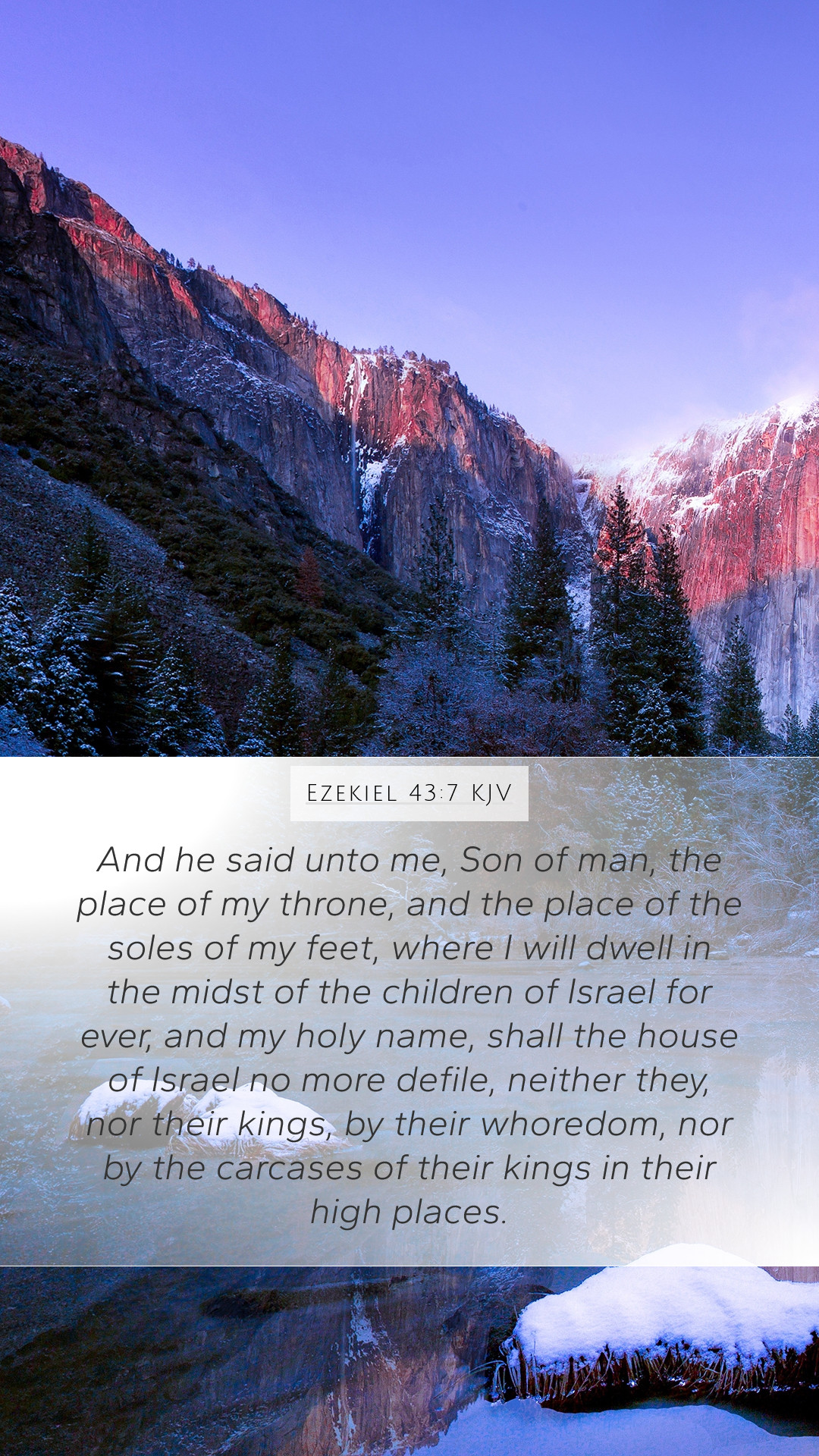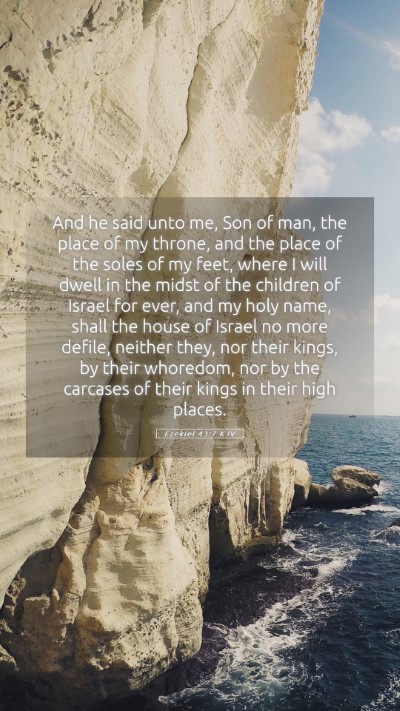Ezekiel 43:7 - Understanding the Meaning and Significance
The verse Ezekiel 43:7 is a powerful declaration concerning the presence of God among His people and the restoration of worship. Through various commentaries, we can draw rich insights, exploring the Bible verse meanings, interpretations, and the broader biblical context. This analysis will cater to both individual Bible study and group discussions.
Verse Text
"And he said unto me, Son of man, the place of my throne, and the place of the soles of my feet, where I will dwell in the midst of the children of Israel for ever, and my holy name, shall the house of Israel no more defile, neither they, nor their kings, by their whoredom, nor by the carcases of their kings in their high places." - Ezekiel 43:7 (KJV)
Commentary Insights
Matthew Henry's Commentary
Matthew Henry emphasizes that the temple represents the dwelling place of God among His people. He observes that the proclamation of God's throne signifies His sovereignty and authority. Henry explains that God desires a holy dwelling where His name is revered. He also notes that God's intention is to draw a clear line between the sacred and the profane, urging the Israelites to abandon their Idolatry and sin.
Albert Barnes' Notes on the Bible
Albert Barnes highlights the significance of God's eternal presence among Israel. He points out that the phrase "place of my throne" refers to the holy sanctuary where God reigns. Barnes expresses that God's name signifies His divine nature and holiness. The warning against defilement serves as a call for repentance and transformation, emphasizing that the people of Israel must respect their covenant relationship with God.
Adam Clarke's Commentary
Adam Clarke elaborates on the imagery of God's feet resting in His temple, which symbolizes that God is not distant but intimately involved in the lives of His people. Clarke asserts that God's holy name must not be associated with corruption, and he interprets the “whoredom” mentioned in the verse as a metaphor for unfaithfulness to God. He encourages believers to reflect on the holiness that is required in worship and offers insights on how to cultivate a true spiritual relationship with the Lord.
Key Themes in Ezekiel 43:7
- The Divine Presence: The verse highlights God's desire to dwell among His people eternally, symbolizing intimacy and care.
- Holiness Required: It serves as a reminder that worship should be conducted in holiness, free from idolatry and sin.
- Covenant Relationship: The emphasis on defiling His name and throne points to the seriousness of the covenant between God and Israel.
Related Bible Verses
- Leviticus 26:12: "And I will walk among you, and will be your God, and ye shall be my people."
- Revelation 21:3: "And I heard a great voice out of heaven saying, Behold, the tabernacle of God is with men, and he will dwell with them."
- Isaiah 57:15: "For thus saith the high and lofty One that inhabiteth eternity, whose name is Holy; I dwell in the high and holy place..."
Application of Ezekiel 43:7
Understanding Scripture such as Ezekiel 43:7 reveals the importance of purity in worship. As contemporary believers, there remain valuable lessons in how we approach God and the sanctity we uphold in worship practices. Engaging in Bible study resources that focus on the nature of God can deepen our appreciation of His holiness and call to transformation.
Conclusion
The insights gleaned from public domain commentaries affirm that Ezekiel 43:7 is not only a historical proclamation but also a contemporary call to holiness and devotion. Applying meaning of Bible verses like this in our daily lives encourages us to reflect on our relationship with God and pursue a deeper understanding of His word.


